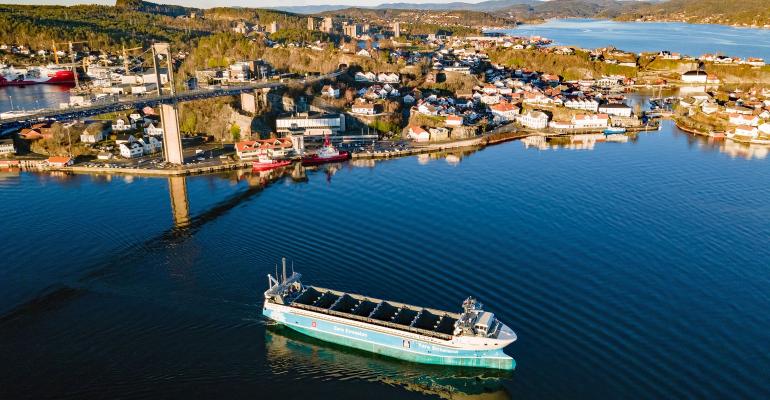Full decarbonisation of international shipping is possible by 2050 with concerted, collaborative action, according to the Getting to Zero Coalition’s Strategy for the Transition to Zero-Emission Shipping report.
Prepared by University Maritime Advisory Services (UMAS), the report is summarised in four key takeaways –
- The necessary transition is feasible – it can and must accelerate.
- The transition is not all about the IMO. Far from undermining the IMO’s authority, national and regional regulation have an important role to play.
- The fuel pathway is not predetermined, but will be laid brick-by-brick, and all actors have a responsibility to ensure it is well built.
- There are abundant opportunities for Scalable Zero Emission Fuels (SZEF) use this decade. Enabling this early use requires concerted action now.
The report states that a technology transitions in industry are common and that shipping’s transition away from fossil fuels can learn from other similar transitions, but “urgent and drastic correction from both commercial and policy actions to avoid significant risks to the sector and global trade.”
Increased efficiency is noted as a key low-hanging fruit for the sector, as more efficient ships and systems will require less power and fuel thus lowering costs.
On the policy front, the report advocates action in concert at all levels-local, regional and global- as a means to accelerate the adoption of measures the IMO. Clear signals to industry will stimulate industry action, said the report, and “the essential thing is to move from a stand-off, where each party places conditions on action, to a virtuous cycle, where each party takes what actions it can in order to embolden the actions of the other.”
Due to the expected high demand growth for low carbon fuels during the transition, the report backs hydrogen-based fuels. Where high demand would increase the price of green fuels which depend on limited biomass feedstocks such as bioLNG, growing demand will reduce the price of hydrogen-based fuels through increased scale of production.
Retrofitting ships to use SZEF will play as significant a role in the decarbonisation transition as newbuilds, the report expects, and so ships will need to be designed ready for or retrofittable to SZEF fuels.
“Today’s investments should be made with the long-run solution of (SZEF) in mind, even if the pathway there involves other steps. Precision and far-sightedness in language and communications by all stakeholders is key, to ensure that actions by the industry, and the signals they send to policymakers, are truly linked to scalable, zero-emission pathways,” said the report.
The most urgent actions for today are those that enable the use and production scaling of SZEF, said the report, with a target of 5% of maritime fuel consumption being SZEF by 2030. The report estimates that 10% of shipping’s fuel use has promising conditions for transition to SZEF by the end of this decade.
Copyright © 2024. All rights reserved. Seatrade, a trading name of Informa Markets (UK) Limited.
Add Seatrade Maritime News to your Google News feed.  |

